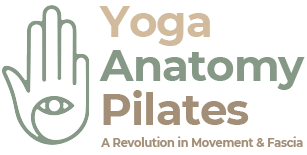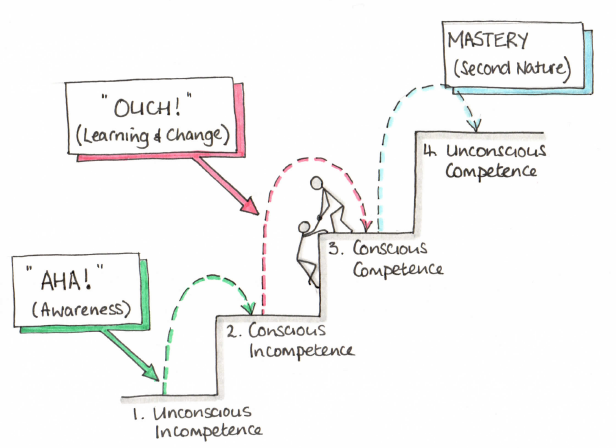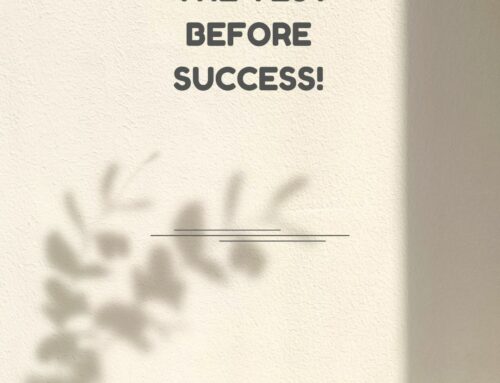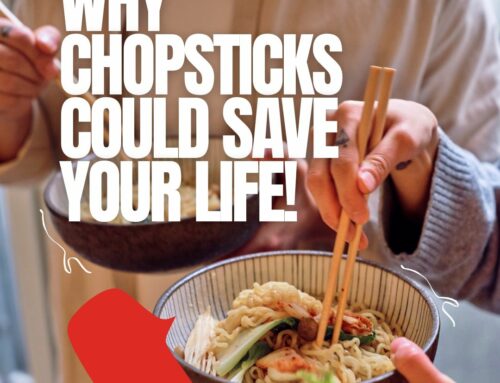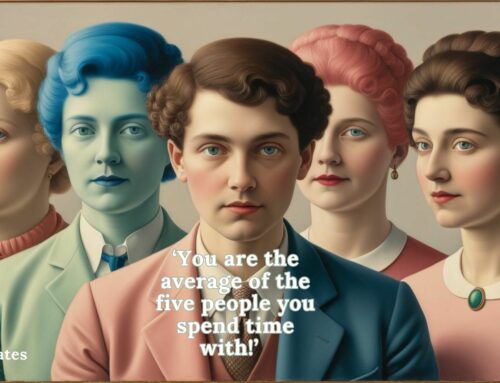“Success is hastened or delayed by one’s habits. It is not your passing inspirations or brilliant ideas so much as your everyday mental habits that control your life.” Paramahansa Yogananda
We are 100% committed to our habits whether they are good or bad. Clients come to me to improve back pain, lose weight, improve their lifestyle, get rid of chronic pain including knees, hips or shoulders or improve core stability. This is the thing, talk is cheap. Action is the only answer. Starting new things in life is easy but keeping them going is another thing. When we are under any sort of pressure, whether it be financial, emotional, physical, mentally or spiritually we tend to revert back to the same behaviour and belief system that keeps us in the same predicament in which we continue to suffer.
“You can’t solve the problem with the same thinking that caused it” or “Repeating the same behaviour is utter madness”– Albert Einstein.
We are our own worst enemy, it’s our limiting beliefs and self doubt that holds us back. We can see the faults in others, but rarely do we see the problems in ourselves. We get wrapped up in our story, that our malad or dis-ease are hereditary and maybe so for the 1% according to Dr. Bruce Lipton. The majority of what I experience myself and what I see in clients is repeated patterns stored in the subconscious mind learnt form childhood parenting, schooling environment, cultures, governments and religious upbringing.
“The pen that writes your life story must be held in your own hand.” Irene C. Kassorla
We are all trying to do our best and wade through life with the tools that we have in our toolbox. Children repeat what they see, not what you say. The outside world tends to mirror the inner turmoil inside of us. The human body has its own innate way of talking to us, yet we dumb it down with addictions that keep us passive in life rather than an active spiritual adult. These addictions include endless scrolling, media, alcohol, sugar, shopping, gambling, drugs both prescription and recreational and poor-quality foods to name but a few. The way we behave to others is a reflection of how we are dealing with our inner turmoil and pain. This is not an excuse but an opportunity to reflect and change. Is our model of lifestyle working?
“No one saves us but ourselves. No one can and no one may. We ourselves must walk the path.” Buddha
Most of us need to actually stop a habit rather than over burden with an additional stress of adding more. I see so many people start with new year resolutions of boot camp, dry January or clean eating only to fall flat on their face by February. In order to create or start new habits we need to take away things. For example I see the constant argument between keto and vegans, but the thing is this diet probably works for both sets of people. The reason probably being it’s not about what they are eating, it’s about what they are not eating like processed foods, beige carbohydrates, sugar or fizzy drinks. So they have taken things away.
“What consumes your mind is what controls your life.” Anonymous
If we do not implement new habits and practices, the old habit stays in place. We become the one who suffers, no one else. According to researchers at Duke university our habits account for 40% of our behaviour on any given day. So we repeat the same cycle over and over again blaming everyone else, yet it us attracting the same circumstances and reverting back to the same method of problem solving. Whether its back pain or your 3rd marriage or failed relationship, your habit is in your subconscious and you have taken action before you even begin to think.
You are responsible for your own happiness and success.” Harvey Mackay
Bad habits stop us making progress. Any area of your life which is disempowered is usually an effect of a bad habit. This could be your body or your bank account. Not implimenting a new habit means there is a bad habit in its place. Habits are small decisions that we make every day. Our habits go even deeper than decisions. They are a redundant set of automatic unconscious thoughts, behaviours and emotions acquired to reputation.
“You are in control of your life. Don’t ever forget that. You are what you are because of the conscious and subconscious choices you have made.” Barbara Hall
We never decide to overreact. We overreact and then realize that this has not served us. We behave from hindsight (hind brain) rather than fore sight (fore brain). According to Dr.John Martinee we always move towards pleasure rather than pain, of course we don’t want to be uncomfortable in life, so we choose the easiest or fastest route. However when we do not change, we continue to stunt growth and prosperity.
A bad habit is something that we do, that is not in line with who you say you want to be. A bad habit is not in line with your future vision. All habits are linked to our past. A bad habit means you will end up with a result that you don’t want. A good habit is in line with your future vision. Good habits have long term pay offs whereas short term habits have only had long term drawbacks.
“Your attention please: No one is coming to save you. This life of yours is 100% your responsibility.” Anonymous
We tend not to see the drawback of bad habits till further down the line. That can be an hour later, ten months later or ten years later. Repetition is the mother of all skill. If you want to get good at something, you have to keep repeating the skill and fit this into your daily schedule. Starting good habits is building a life that you want, rather than a life of unmet expectations. Anger and frustration are unmet expectations.
“Control your own destiny or someone else will.” Jack Welch
Through patience and practice we can become a master of anything. The conscious competence model can be useful in all sorts of training situations. Other people may readily accept the need for development from 1 to 2, but may struggle to progress from 2 to 3 (becoming consciously competent) because the skill is not a natural personal strength or aptitude. Some people may progress well to stage 3 but will struggle to reach stage 4 (unconsciously competent), and then regress to stage 2 (consciously incompetent) again, simply through lack of practice. See the diagrams attached:
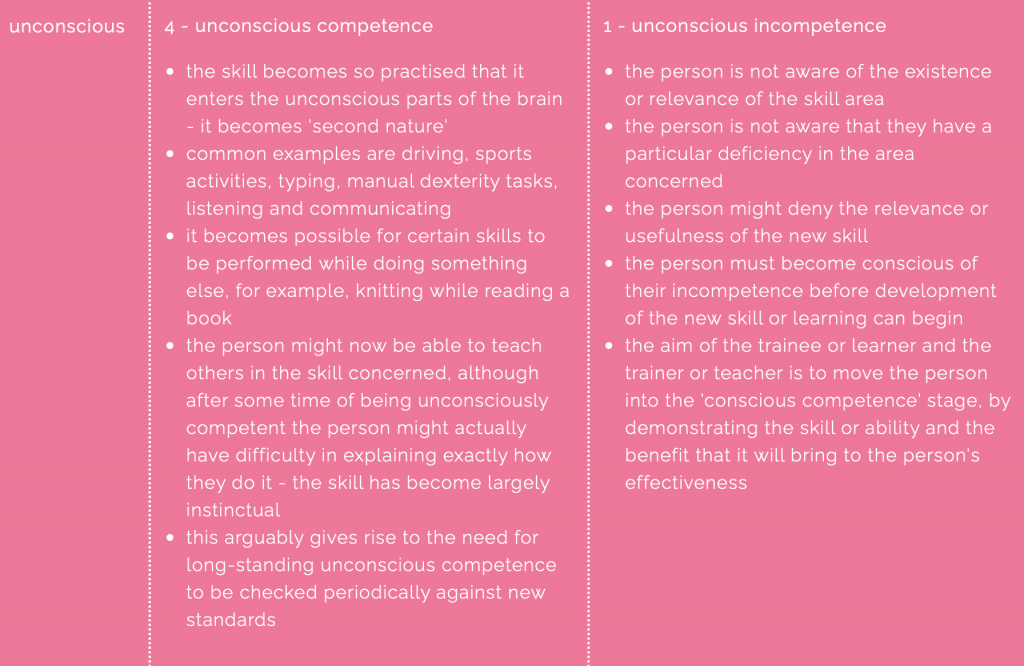
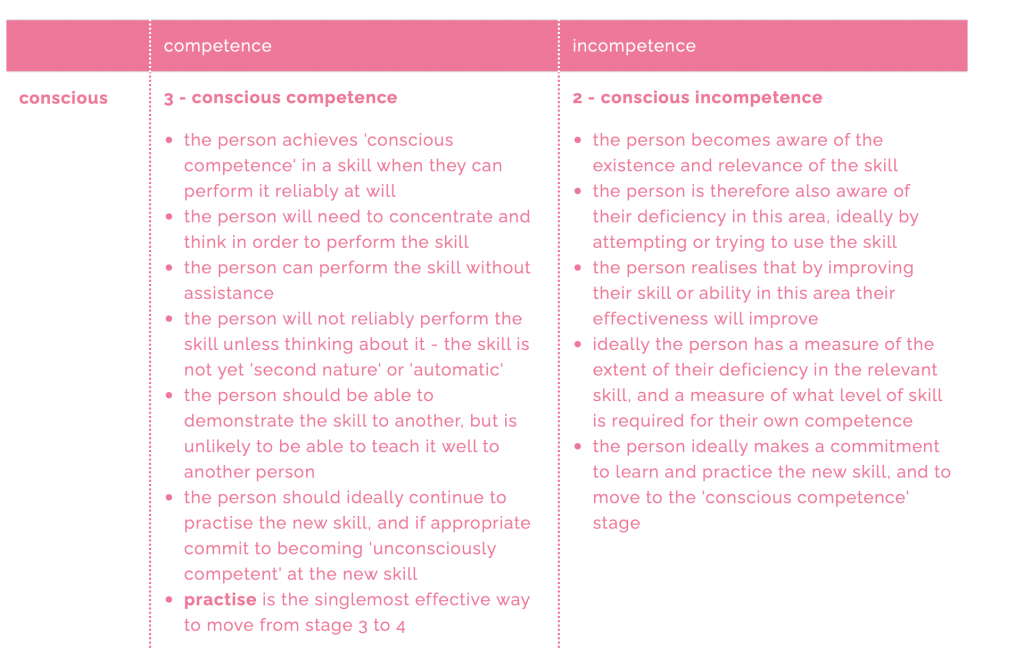
Questions to ask yourself in order to achieve self-master
- What is the habit that does not serve me? As awareness is the first step to change.
- When do I do this habit? Is it when I wake up in the morning or wind down at night or perhaps on breaks e.g Phone scrolling?
- What feeling do I get when I do this bad habit? Junk food, sugar, scrolling E.g is this a crutch that I am leaning on.
- Get honest with yourself. What you resist persists! If you are moaning and complaining nothings changes till you change. Do you still want to be in the same position, 12 months down the line, 5 years down the line?
- What are the drawbacks of this habit?
- Are there any paybacks of this habit?
- What could I replace the habit with?
- How do I stop feeling like a spectator in my life?
Stop Feeling Like a Spectator in Your Own Life
- Practice the art of making decisions and developing preferences in everyday life.
- Set yourself goals that you are genuinely motivated by.
- Engage in activities that you find daunting, and that challenge your perceived limitations.
“No one is in control of your happiness but you; therefore, you have the power to change anything about yourself or your life that you want to change.” Barbara de Angelis
Bibliography
Paul Chek
Dr.Mark Hymen
Paul Mort
Atomic habits – James Clear
